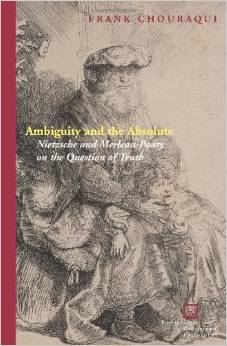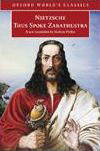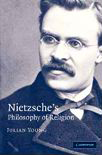- Home
- The Agonist
- Current Issue
- VOLUME VII, ISSUE I, SPRING 2014
VOLUME VII, ISSUE I, SPRING 2014
-
Frank Chouraqui’s Ambiguity and the Absolute: Nietzsche and Merleau-Ponty on the Question of Truth
By Nicholas Birns
You may download the entire book review as Adobe PDF format clicking PDF icon on the left. If you need some clarifications about copyright or usage rights, please contact us at nceditors@ietzschecircle.com.
A quick preview of book review...
 Frank Chouraqui’s invigorating book on Nietzsche and Merleau-Ponty is
necessarily written in the style of the latter. Merleau-Ponty was a professional philosopher training in the high French tradition, although thoroughly repudiating
the Cartesian and rational emphasis of French thought and incorporating copious amounts of Hegel and other German idealists, who, like Marx but in a very different way,
he inverted and materialized. Nietzsche, as we too often forget, was not a professional philosopher, but a professional philologist, and although he knew the Greek
tradition thoroughly he knew it as a lover of words, not as someone who, however rigorously, uses words to delineate concepts. The later Nietzsche ardently,
if a tad hyperbolically, put the French on a pedestal, as if to tweak German nationalism by that but Merleau-Ponty is no one’s lapidary aphorist, and, because of
the influences mentioned above, often has a dense, turgid, Teutonic feel to him. One also feels personal differences (Nietzsche’s sex life was both untheorized and
unrealized, Merleau-Ponty’s, perhaps too theorized, and almost certainly too realized) and divergences of background (Nietzsche a lapsed Lutheran,
Merleau-Ponty a never-too-lapsed Catholic) obtrude to make the two thinkers different enough that one has to; ‘host’ the book even if both are equally its subjects.
Chouraqui has quite evidently placed Merleau-Ponty in the position of; 'host'.
Frank Chouraqui’s invigorating book on Nietzsche and Merleau-Ponty is
necessarily written in the style of the latter. Merleau-Ponty was a professional philosopher training in the high French tradition, although thoroughly repudiating
the Cartesian and rational emphasis of French thought and incorporating copious amounts of Hegel and other German idealists, who, like Marx but in a very different way,
he inverted and materialized. Nietzsche, as we too often forget, was not a professional philosopher, but a professional philologist, and although he knew the Greek
tradition thoroughly he knew it as a lover of words, not as someone who, however rigorously, uses words to delineate concepts. The later Nietzsche ardently,
if a tad hyperbolically, put the French on a pedestal, as if to tweak German nationalism by that but Merleau-Ponty is no one’s lapidary aphorist, and, because of
the influences mentioned above, often has a dense, turgid, Teutonic feel to him. One also feels personal differences (Nietzsche’s sex life was both untheorized and
unrealized, Merleau-Ponty’s, perhaps too theorized, and almost certainly too realized) and divergences of background (Nietzsche a lapsed Lutheran,
Merleau-Ponty a never-too-lapsed Catholic) obtrude to make the two thinkers different enough that one has to; ‘host’ the book even if both are equally its subjects.
Chouraqui has quite evidently placed Merleau-Ponty in the position of; 'host'.
Nonetheless he convinces his reader that the two philosophers share an agenda, in opposition to absolute truth-claims and to truth as apprehension in favor of truth as “incorporation” (73). As Chouraqui nimbly explains, incorporation may seem like a seamless transference of the soul’s properties to the body, but in fact can have more discontinuous and even violent aspects, as in the act of being ingested consumed eaten. Inspiration is at, once a form of consumption and of appropriation; and it is the philosopher’s task, since we ingest so many ideas anyway, to emphasize that which is good ‘food”, that is to say truth: and that which is not, which is to say “error.” This is complicated in that obviously once one is within either of these thinkers there is no categorical way to divide truth from error; it becomes, at best, a gut feeling.
Nietzsche relies on an alert “self-becoming” (98) to produce a "strong human" capable of exercising thus gut feeling. Importantly, Chouraqui places just the right sort of rhetorical checks on a potentially vulgar voluntarism here, not only using the female pronoun to designate the putative strong human, as if to ward off vulgar-Nietzschean machismo, but stating that she is a “means responsible for an adequate management of the energy available in the world” (102) This is far more of a bureaucratic than charismatic description fitting more to a moderate Labor government than an ecstatic affirmation of Carl Schmitt-style decisionism, and this sort of social democratic haleine is just what Nietzsche needs, the strong human must also be sick, precisely because that vulnerability give she the prudence and discretion to separate, from all the accumulated detritus we incorporate, the good from the bad.
to continue reading, download entire review as Adobe PDF format ...
The Agonist
-
Thus Spoke ZarathustraBy Friedrich NietzscheA new translation by Graham Parkes
Oxford University Press, 2005
Reviewed by Horst HutterThis new translation of Nietzsche’s magnum opus is by far the best available in the English language. It should find its way to the desk of all students who do not have access to the original German.
-
Nietzsche’s Philosophy of ReligionBy Julian YoungCambridge University Press, 2006
Reviewed by Horst Hutter,
Concordia UniversityEvery student of Nietzsche in the Anglophone world should read this book. It is a most able treatment of a much-ignored and much-misunderstood topic close to the very heart of the writings of this seminal thinker.
Subscribe
To receive site updates, news, and announcement from NC via email. To do so, you simply need to provide your email address below.





